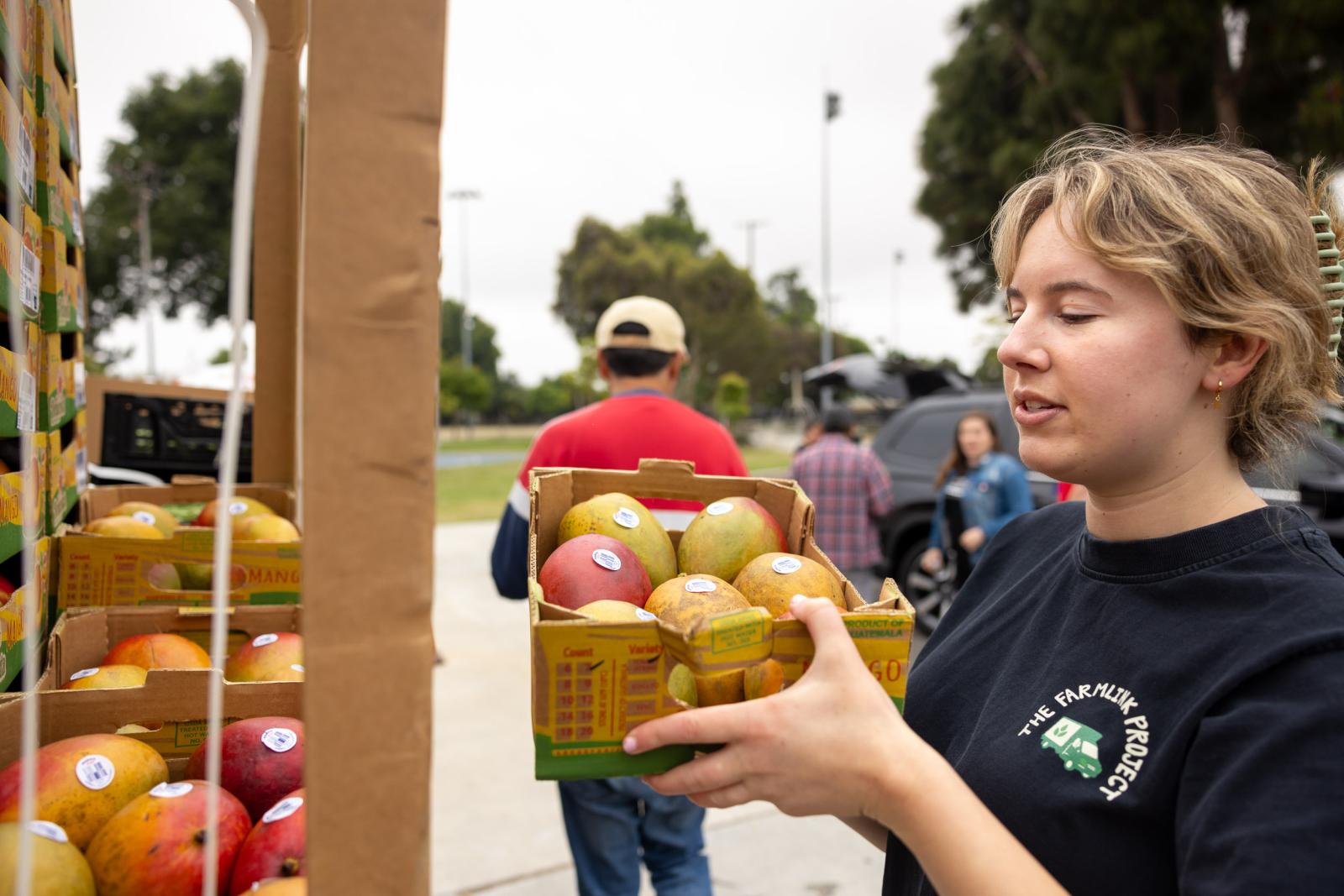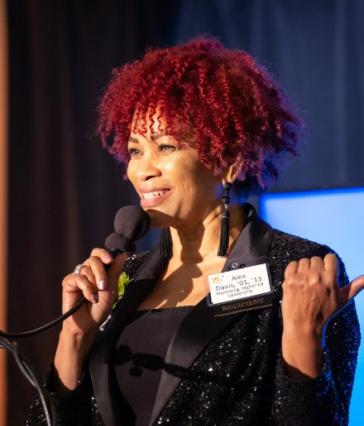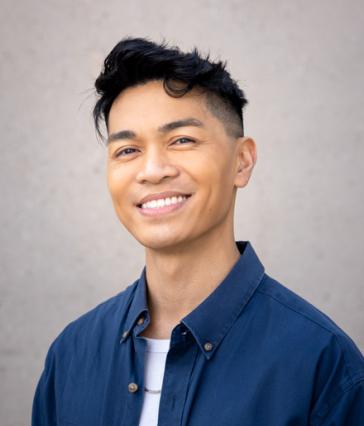CSULB’s first sustainability master’s grads are already making an impact
One graduate is a senior environmental scientist for the Department of Toxic Substances Control. Another is head of corporate relations for a growing nonprofit that aims to minimize food waste.
And another is an associate for an organization that is striving to protect the planet and fight the tide of climate change.
They are all 2023 alumni of CSULB’s Master of Science in Sustainability Management and Policy Program (MSSMP), and collectively, they are already making an impact in the field – and on the world.
The MSSMP program started in 2022 and to date, it has produced eight graduates who are making a difference in the sustainability field. The next eight graduate this summer.
It was the first sustainability-focused program in the California State University system, according to Monica Argandoña, director of the MSSMP program. At the time of its creation, there weren’t any other programs available in Southern California either.
Now, a few others have popped up because of the demand.
“The job market is crazy,” said Argandoña, who’s also a full-time lecturer in environmental science and policy at The Beach. “It’s the wild West. There are sustainability professionals across the board – in the private sector, government, nonprofits. Our students have the hard and soft skills needed to go and get jobs in this field. And these are great-paying jobs.”
Here's a look at three graduates from the class/cohort of 2023 who are making an impact in sustainability today.
Serena Palmer
Palmer is a research associate for Better World Group, a downtown Los Angeles firm that works with leading environmental, health, labor and business groups to enact sustainable policies and strategies.
“I always had an affinity toward environmentalism,” Palmer said. “Instead of being part of the problem, I wanted to become part of the solution.”
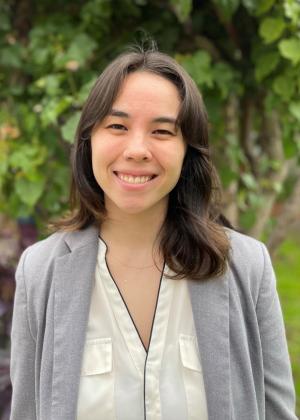
When she started at BWG as an intern, she was still in the MSSMP program. She helped get a clean cars regulation passed with the state Air Resources Board.
She has since become an associate, and nowadays, she’s geared more toward clean energy policies. “I’m working with a team to de-carbonize the industrial sectors. We come in as consultants, to see where we can leverage regulations and rules to help disadvantaged communities, which are often overlooked.”
She’s working with companies and heat pump technology to reduce industrial emissions; she’s also working with the Southern California Air Quality Management District to require commercial ovens to be zero-emission.
Palmer says her cohort at CSULB helped her get through the program and find her niche in the sustainability field. She admires her classmates for their ambition and drive to make a real difference in the world. “I see them making huge changes. They’re all making big waves.”
Nicole Macatrao
Macatrao is a senior environmental scientist for the state Department of Toxic Substances Control (DTSC). When she was a master’s student at CSULB, she was an environmental scientist with CalRecycle, where she helped support the implementation of SB 1383, a state law that mandates the diversion and recycling of organic waste.
Now, at the DTSC, she works with the Safer Consumer Products Program. “We identify products that we, in the California population, use in our home, schools, places of work, that contain hazardous chemicals that can harm people or the environment. We require companies to look for alternative ways to make products that are safer that still work.”

One example is the effort to reduce the chemical 6PPD in tires, which is widely used as a stabilizing element to prevent tires (and other rubbers) from breaking down. However, when 6PPD gets washed into the ocean, it can be fatal to aquatic organisms, especially coho salmon.
“We are working with tire manufacturers to see if they can find alternatives to using this chemical,” Macatrao said. “We look at a lot of different things. It’s very interesting work. It’s kind of a field that most people don’t know about. But I feel like it’s very important.”
She feels like she learned a lot from CSULB’s MSSMP program, and not simply ways to save the planet.
“It made me look at organizational structure through a lens of sustainability, and not just the environment,” she said.
Hailey Wesling
Wesling is head of corporate relations for the Farmlink Project, a nonprofit that recovers surplus food from farms and helps deliver it to food banks.
“Every week, we’re preventing millions of pounds of food from going to waste in landfills,” Wesling said. “We’re promoting the idea of a circular food economy.”
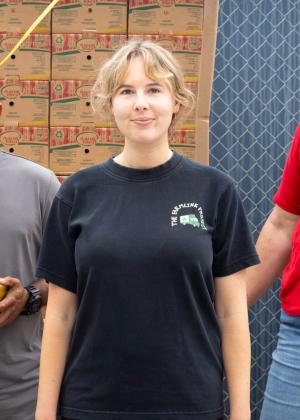
The Los Angeles-based organization was founded in 2020 by college students during the pandemic. In her role as head of corporate relations, Wesling works with corporate stakeholders who aim to be more environmentally, ethically and socially mindful.
“I’ve learned a lot about what it’s like coming from a corporate or governmental standpoint of needing to improve internal operations and external relationships and trying to contribute to a more sustainable society.”
Wesling said she chose CSULB’s MSSMP program because it was in person, while others in the country were online and asynchronous.
“We had great discussions in person. Our cohort became very close. We really enjoyed spending time with each other and working on these projects together and studying and just giving each other advice.”
She believes her cohort – and those that will follow at The Beach – are making a significant difference in the world.
“Everyone in my cohort is very bright and very ambitious,” she said. “We all have the kind of attitude – we’re compassionate and empathetic people. But we’re also mindful of not accepting the status quo. We want to make society a more sustainable place, and we’re working and reaching toward great goals.”
